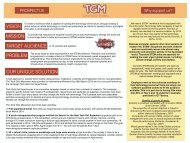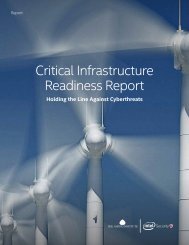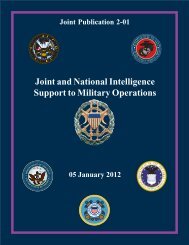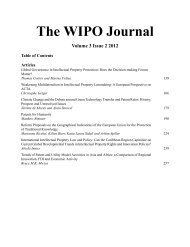Transparency Initiative (EITI)
2eoch1l
2eoch1l
Create successful ePaper yourself
Turn your PDF publications into a flip-book with our unique Google optimized e-Paper software.
81<br />
9.3.2 PUBLIC DEBATE<br />
9.3.3 ANTI-CORRUPTION<br />
Advocacy of civil society: Initially, the M-<strong>EITI</strong> process was<br />
primarily led by the GoM representation at the MSG, with<br />
civil society playing only a minor role. To increase their influence,<br />
the three CSOs represented in the MSG – the Institute<br />
of Economic and Social Studies (IESS), CIP, and Youth<br />
KUVUKA-JDA – supported the creation of an extractive industries<br />
CSO platform, which now comprises 40 organizations.<br />
The platform has been vocal in pushing for enhanced<br />
impacts of M-<strong>EITI</strong> in society by ensuring that transparency<br />
in extractive industries goes beyond the revenue numbers<br />
to focus on promoting efficient management of resources<br />
and enhancing public dialogue around the extractive industries.<br />
Improved dialogue around extractive sector issues: The<br />
M-<strong>EITI</strong> has become a platform for all three MSG member<br />
groups to discuss issues that go beyond just the revenue<br />
numbers, e.g., the MSG meetings have fruitfully covered<br />
topics related to revenue sharing formulas with local<br />
communities, resettlement issues, and contract transparency<br />
that have fed into higher level policy discussions in the<br />
country.<br />
No evidence has been detected by this study on the level of<br />
corruption in the extractive sectors as a result of <strong>EITI</strong> implementation<br />
in Mozambique. However, some positive impact<br />
on public financial management is noticeable.<br />
Improved data collection and recording: The production of<br />
six <strong>EITI</strong> reports since 2011 has implicitly strengthened government<br />
systems over time. Production of the reports have<br />
led to better data systems as the reports have pointed to inconsistencies<br />
in data collected from the mining cadaster<br />
and the General Taxation Directorate (DGI) as well as to incomplete<br />
information, which initially prevented adequate<br />
reconciliation of revenues. During the early years, there<br />
were significant problems with companies not reporting<br />
under their individual Tax Identification Numbers (NUIT),<br />
but rather entering the MIREME’s NUIT on their reporting<br />
templates, making reconciliation of company payments<br />
and government receipts practically impossible, as companies<br />
could not be distinguished from each other. As this<br />
problem has been resolved over time, the GoM is now able<br />
to track extractive revenue by individual company.<br />
Additionally, several recommendations from the <strong>EITI</strong> Reports<br />
are being implemented to (i) improve the effectiveness<br />
and completeness of data recording between the mining<br />
cadaster and the Tax Authority; (ii) implement accurate<br />
recordings of payments by companies at the Tax Authorities<br />
in the provinces and the Tax Authority at the central<br />
level, so that cross checking of information is automatic;<br />
and (iii) to improve oversight by MIREME of concession<br />
transfers and the proper documentation of such transactions,<br />
which would allow collection taxes applicable to such<br />
transfers.<br />
Distribution of extractive sector revenues: CSO representatives<br />
on the MSG have advocated for the distribution of extractive<br />
sector revenues in favor of the communities in the<br />
areas impacted by the industries. As a result, the government<br />
issued Circular No. 1/MPD-MF 2013 in compliance<br />
with Laws No. 11/2007 and 12/2007, which establish that<br />
a certain percentage of revenues generated by the extractive<br />
industries activities be assigned for the development of<br />
communities in areas of influence of these projects. Issues<br />
around the efficient management of revenues, including<br />
the creation of a sovereign wealth fund for future generations,<br />
have also been discussed by the think tank Agenda<br />
2015, and a study on the creation of community-based<br />
structures to handle development funds was conducted by<br />
an NGO in Nampula.









